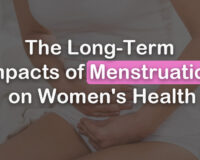In recent years, societal shifts and advancements in reproductive technology have made it increasingly common for men to father children later in life. While much of the focus on parental age has traditionally been on mothers, the age of fathers also plays a crucial role in the health and future of their offspring. This blog delves into how aging fathers affect their children, examining the potential impacts on health, development, and overall well-being.
Genetic Mutations and Health Risks
One of the primary concerns associated with older paternal age is the increased risk of genetic mutations. As men age, the number of times their sperm cells divide increases, which can lead to a higher likelihood of DNA replication errors. These errors can result in mutations that may be passed on to their children. Studies have shown that advanced paternal age is associated with an elevated risk of certain genetic disorders, such as autism, schizophrenia, and achondroplasia.
For instance, a study published in the journal Nature found that children of older fathers are more likely to have de novo mutations—new genetic mutations that neither parent possessed—than younger fathers. These mutations can sometimes result in developmental disorders or other health issues, emphasizing the importance of understanding the genetic implications of delayed fatherhood.
Impact on Fertility and Pregnancy Outcomes
Older paternal age can also influence pregnancy outcomes and fertility. Research indicates that children conceived by older fathers may have a higher risk of adverse birth outcomes, such as low birth weight and preterm birth. Additionally, advanced paternal age has been linked to an increased likelihood of miscarriage. This is partly due to the decline in sperm quality with age, which can affect the embryo’s development and viability.
Psychological and Developmental Effects
Beyond genetic and physical health risks, there are psychological and developmental considerations. Studies suggest that children of older fathers may face a higher risk of psychiatric conditions, including bipolar disorder and attention deficit hyperactivity disorder (ADHD). The underlying reasons for this association are complex and may involve genetic factors, epigenetic changes, and environmental influences.
Furthermore, the age gap between older fathers and their children can affect family dynamics and parenting styles. Older fathers might bring more life experience and stability, which can be beneficial. However, they may also face age-related health issues that could impact their ability to engage in physical activities with their children, potentially influencing the child’s social and emotional development.
Longevity and Generational Relationships
A father’s age can also affect the intergenerational relationships within a family. Children of older fathers are more likely to experience the loss of a parent at a younger age, which can have profound emotional and psychological effects. The potential for reduced time spent with a parent can impact a child’s sense of security and stability.
On the other hand, older fathers often have more established careers and financial stability, which can provide a more secure environment for their children. This financial stability can lead to better educational opportunities and resources, positively influencing the child’s future prospects.
Epigenetic Factors
Emerging research highlights epigenetics’s role in understanding paternal age’s impact on offspring. Epigenetics refers to changes in gene expression that do not involve alterations to the underlying DNA sequence. These changes can be influenced by various factors, including paternal age. For example, a father’s age at the time of conception can affect the epigenetic marks in his sperm, potentially influencing the child’s development and health in ways that are not yet fully understood.
Conclusion: Balancing Risks and Benefits
While advanced paternal age comes with certain risks, balancing these with the potential benefits is important. Older fathers often bring more emotional maturity, life experience, and financial stability to parenting. These factors can contribute positively to a child’s upbringing and future success.
However, being aware of the potential health risks associated with older paternal age is crucial. Prospective older fathers should consider consulting with healthcare professionals to understand these risks better and explore any possible preventive measures. Additionally, maintaining a healthy lifestyle can improve sperm quality and overall health, potentially mitigating some of the risks associated with aging.
In conclusion, fathers’ age can indeed affect their children’s future and health in various ways, from genetic and developmental factors to psychological and social dynamics. As more men choose to become fathers later in life, understanding these implications becomes increasingly important for ensuring the well-being of future generations.





